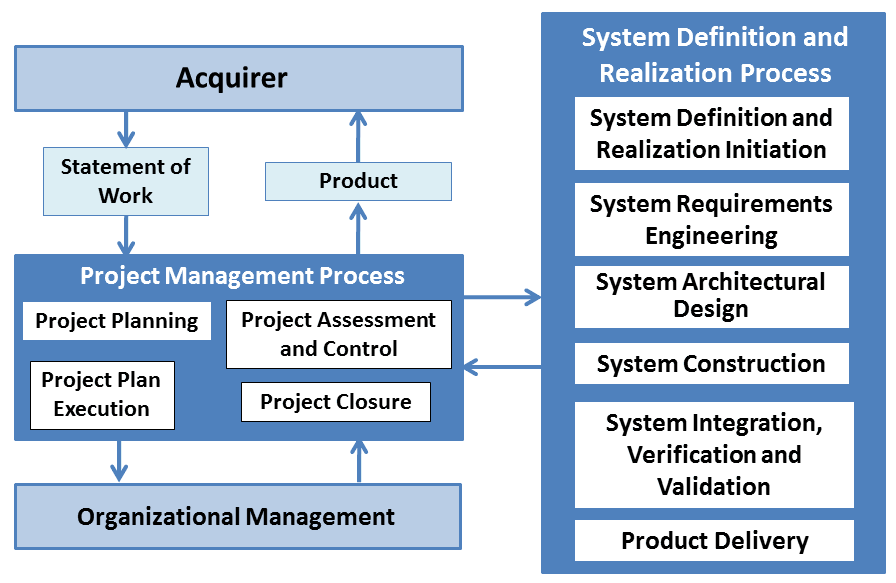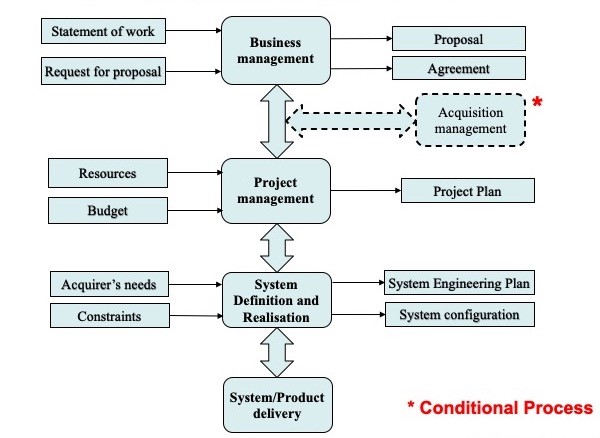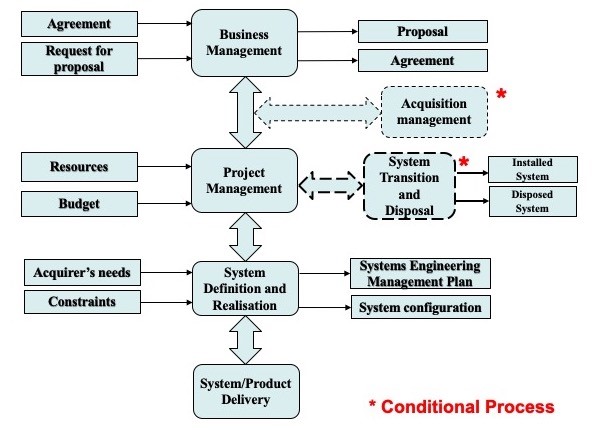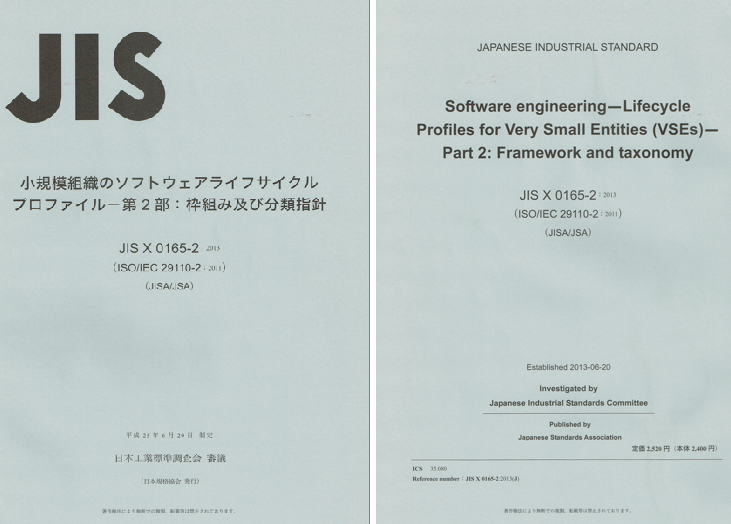This
page describes the concept of Profiles, the Generic Profile and the
four Profiles of the Generic Profile Group for VSEs developing systems
having at least one hardware component. If the system being developed
contains a software component, readers are encourage to use the ISO
29110 Software Engineering Management and Engineering Guides.
Systems, in the context of ISO/IEC 29110, are typically
composed of hardware and software components. As illustrated in the
figure below, a system could be composed of many elements. A system is
a collection of related elements and other systems that exists in an
environment and contributes to a common goal.
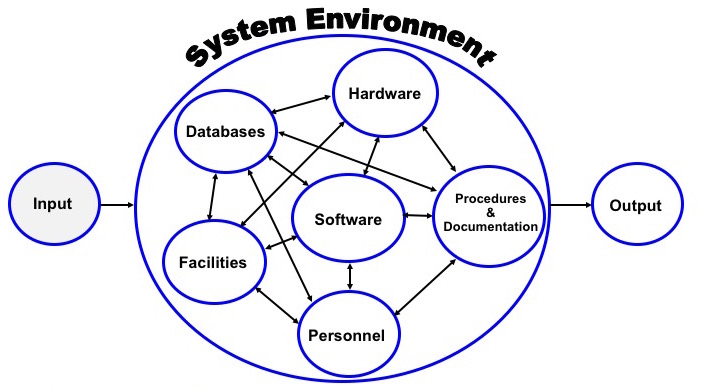
Elements of a System (Forsberg, K., ISO WG24 meeting, China, May 2016)
Profiles
The core characteristic of the entities targeted by ISO/IEC 29110 is size, however there are other aspects and characteristics of VSEs that may affect profile preparation or selection, such as: Business Models (commercial, contracting, in-house development, etc.); Situational factors (such as criticality, uncertainty environment, etc.); and Risk Levels [1]. Creating one profile for each possible combination of values of the various dimensions introduced above would result in an unmanageable set of profiles. Accordingly VSE’s profiles are grouped in such a way as to be applicable to more than one category. Profile Groups are a collection of profiles which are related either by composition of processes (i.e. activities, tasks), or by capability level, or both [2].
The Generic Profile Group
The Generic Profile Group has been defined [3] as applicable to a vast majority of VSEs that do not develop critical systems or software and have typical situational factors. The Generic Profile Group is a collection of four profiles (Entry, Basic Intermediate, Advanced), providing a progressive approach (i.e a roadmap) to satisfying a vast majority of VSEs.
|
Profile Group |
Profile |
|
Generic |
Entry |
|
Generic |
Basic |
|
Generic |
Intermediate |
|
Generic |
Advanced |
Note: Part 1, Part 3 and Part 5 are available at no cost from ISO: http://standards.iso.org/ittf/PubliclyAvailableStandards/index.html
The set of documents is intended to be used by a VSE to establish processes to implement any development approach or methodology including, e.g., agile, evolutionary, incremental, test driven development, etc. based on the organization or project needs of a VSE.
------------------------------------------------------------------------------------------------------------------
The Entry Profile (Published in November 2015)
The first version of the Entry profile (ISO/IEC TR 29110-6-5-1:2015), i.e. for VSEs working on small projects (e.g. at most six person-months effort) and for start-up VSEs.
The Management and Engineering Guide of the Entry profile is available at no cost from ISO (see below)
The Basic Profile (Published in August 2014)
This profile (ISO/IEC TR 29110-6-5-2:2014) applies for non-critical systems development projects.
The Management and Engineering Guide of the Basic profile is available at no cost from ISO (see below)
Using this profile, a VSE can obtain benefits in the following aspects:
- An agreed set of project requirements (technical part of contract) and expected products are agreed by the Acquirer;
- A disciplined
management process, that provides project visibility and corrective actions of
project problems and deviations, is performed;
- A systematic System Definition and Realization process, that satisfies Acquirer needs and ensures quality products, is followed.
The systems
engineering Basic profile, as illustrated in the figure below, is composed of two
processes: Project Management (PM) and System Definition and Realization (SR). An
acquirer provides a SOW as an input to the PM process and receives a product as
a result of SR process execution.
Processes of the Systems Engineering Basic Profile
The Basic profile is targeted at VSEs who do not develop critical systems and do
not have experience with systems engineering process planning and implementation using ISO/IEC/IEEE
15288.
The Basic profile is intended to be
used with any processes, techniques and methods that enhance the VSE's Stakeholders
satisfaction and productivity.
